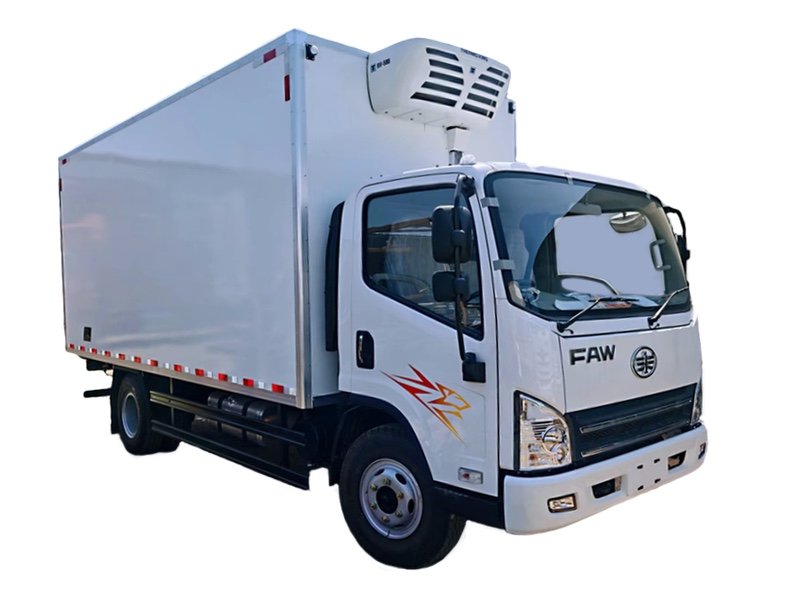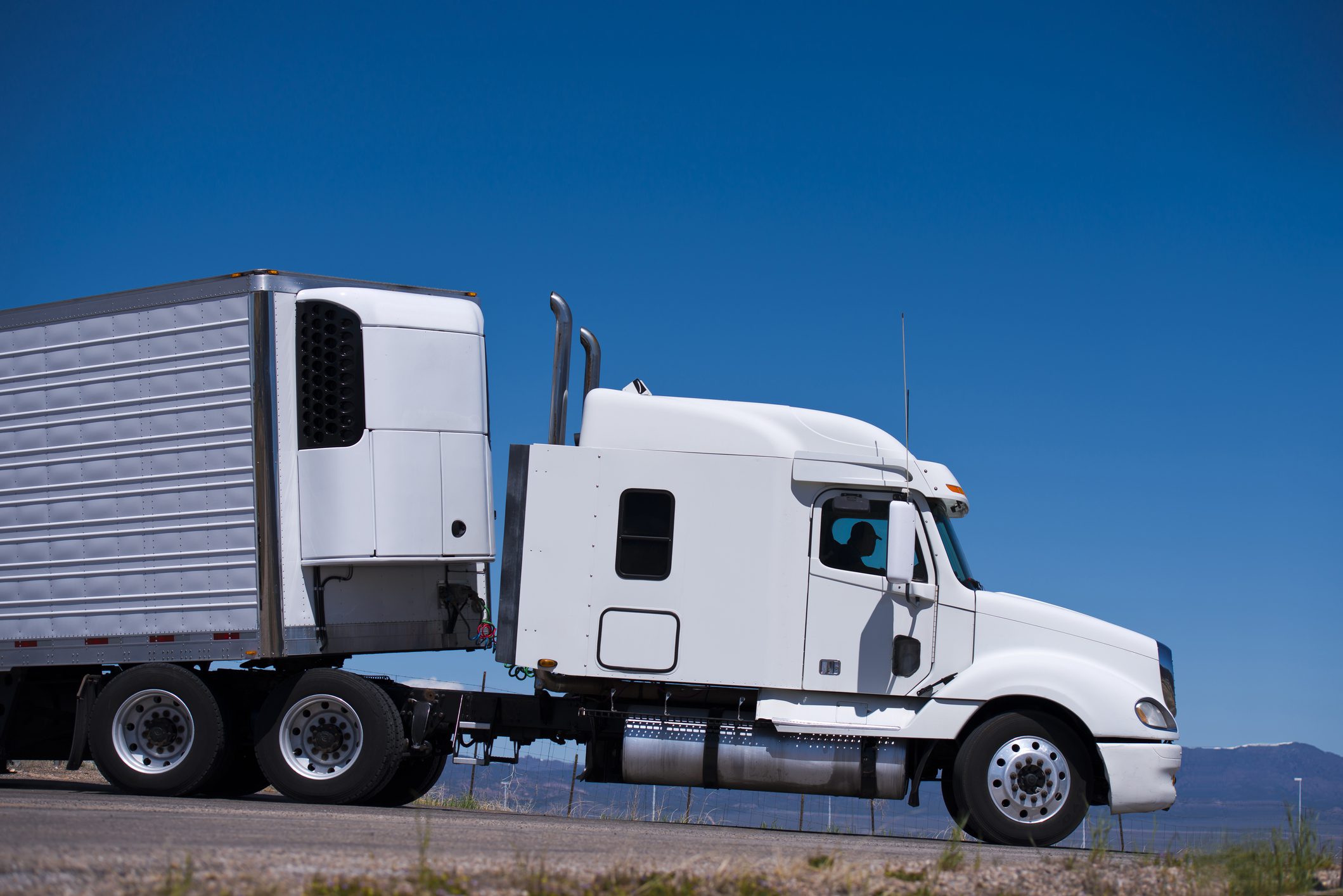Refrigerated Transportation Thermo King: Maintaining Item Fresh en route
Refrigerated Transportation Thermo King: Maintaining Item Fresh en route
Blog Article
Top Innovations in Transport Refrigeration: Enhancing Effectiveness and Safety And Security
The landscape of transport refrigeration is undergoing considerable improvement, driven by advancements aimed at boosting both performance and safety and security. Key advancements such as clever temperature level surveillance systems, environment-friendly refrigerants, and automated route optimization are crucial in attending to the industry's difficulties. These technologies not only ensure the integrity of temperature-sensitive products but likewise contribute to sustainability efforts. As these advancements proceed to advance, it is important to explore their implications on operational practices and regulatory compliance, triggering a better examination of exactly how they improve the future of transport refrigeration.
Smart Temperature Level Checking Equipments
In the realm of transport refrigeration, smart temperature monitoring systems have become an important advancement for making sure the stability of temperature-sensitive goods. These advanced systems leverage Internet of Points (IoT) innovation to supply real-time information on temperature level fluctuations, enabling drivers to preserve optimal problems throughout the supply chain. By continuously tracking the temperature level of cooled containers and vehicles, companies can quickly determine inconsistencies that may compromise product quality.

Furthermore, clever tracking systems usually incorporate automated notifies and notices, allowing stakeholders to react quickly to any type of potential problems. This aggressive technique not only minimizes the risk of wasting however likewise improves compliance with regulatory requirements regulating food safety and security and pharmaceutical transport.
The assimilation of information analytics within these systems also helps with predictive maintenance, assisting operators to visualize possible equipment failures prior to they occur. This capacity lowers downtime and maximizes functional effectiveness, ultimately causing cost financial savings.
Eco-Friendly Refrigerants
Smart temperature surveillance systems play a vital function in preserving product top quality, but the effectiveness of transportation refrigeration likewise pivots on the option of cooling agents utilized. In contrast, arising choices like hydrocarbon-based cooling agents and hydrofluoroolefins (HFOs) present reduced GWP alternatives, offering both performance and sustainability.
These environmentally friendly cooling agents not just lessen environmental effect yet additionally line up with global guidelines focused on terminating hazardous materials. Their fostering can bring about boosted power performance, ultimately decreasing operating expense for transportation refrigeration systems. The use of natural refrigerants, such as ammonia and carbon dioxide, has gained traction due to their superb thermodynamic properties and lower ecological impact.
Buying environmentally friendly refrigerants is not simply a regulative conformity action; it stands for a calculated decision that enhances brand reputation and promotes customer loyalty. refrigerated transportation thermo king. By focusing on lasting methods, companies can add to a greener future while making sure the integrity of carried goods
Advanced Insulation Products
Utilizing advanced insulation products is essential for optimizing transportation refrigeration systems, as they substantially improve energy efficiency and preserve constant temperature control. Traditional insulation techniques usually fall short in stopping thermal transfer, causing boosted power intake and changing temperatures within cooled areas.
Emerging products such as vacuum shielded panels (VIPs) and aerogels offer premium thermal resistance, enabling thinner accounts without endangering efficiency. VIPs, for circumstances, make use of a vacuum layer to lessen conductive and convective warmth transfer, making them ideal for space-constrained applications. Aerogels, recognized for their permeable and lightweight structure, give exceptional insulation while substantially minimizing total system weight.
Moreover, incorporating stage change products (PCMs) right into insulation systems can further support temperatures during transportation. These materials take in and release thermal power, successfully buffering versus outside temperature level variations.
The assimilation of these advanced insulation products not just reduces the functional costs linked with energy consumption but additionally extends the service life of temperature-sensitive products. As the transportation refrigeration sector remains to progress, the fostering of innovative insulation modern technologies will certainly be critical in enhancing both performance and security in chilled transportation.
Automated Route Optimization
The effectiveness of transport refrigeration systems is considerably enhanced through automated route optimization, which leverages real-time information and advanced formulas to establish one of the most effective paths for distribution. By analyzing different elements such as website traffic patterns, weather, and distribution home windows, these systems can significantly minimize traveling time and fuel consumption.
Automated route optimization lessens human mistake and subjective decision-making, which can bring about ineffectiveness. This innovation allows fleet managers to allot resources more properly, guaranteeing that chilled products keep their required temperature level throughout the journey. By enhancing courses, business can also enhance client fulfillment via timely deliveries.
In addition, automated systems can adjust to unexpected circumstances, such as roadway closures or unexpected traffic spikes, permitting vibrant rerouting. This flexibility not only secures the honesty of temperature-sensitive products but likewise adds to general operational effectiveness.
Carrying out automated route optimization can result in significant price savings while reducing the carbon footprint connected with transport. As companies progressively prioritize sustainability, this innovation stands apart as an essential component in contemporary transport refrigeration, aligning functional goals with environmental responsibility. Inevitably, automated route optimization stands for a substantial improvement in the quest for performance and safety in transportation refrigeration.

Real-Time Information Analytics
Automated path optimization dramatically gain from the integration of real-time information analytics, which gives critical understandings click now into the performance of transportation refrigeration systems. By using real-time data, transportation operators can check temperature fluctuations and equipment performance, making sure that subject to spoiling look at this web-site products are kept within required parameters throughout transportation. This aggressive strategy not only enhances the top quality of the moved products yet also reduces the risk of putridity and loss.

Along with boosting effectiveness, real-time analytics boosts safety by making certain compliance with governing standards for temperature level control. This not just protects public wellness but likewise fortifies a business's credibility - refrigerated transportation thermo king. As the transportation refrigeration sector develops, the combination of real-time information analytics becomes a keystone for driving technology, sustainability, and functional excellence
Verdict
In conclusion, the innovations in transportation refrigeration considerably improve both performance and security within the market. Jointly, these innovations stand for a critical development in transport refrigeration, making certain conformity with regulative requirements and promoting a greener future.
The landscape of transport refrigeration is going through substantial makeover, driven by innovations intended at improving both effectiveness and security.Smart temperature Read Full Article tracking systems play a crucial role in maintaining item top quality, yet the efficiency of transportation refrigeration also pivots on the selection of cooling agents made use of. Their adoption can lead to boosted power performance, eventually reducing operating prices for transportation refrigeration systems. Ultimately, automated route optimization represents a substantial innovation in the mission for performance and safety and security in transport refrigeration.
In conclusion, the developments in transportation refrigeration considerably boost both performance and security within the sector.
Report this page